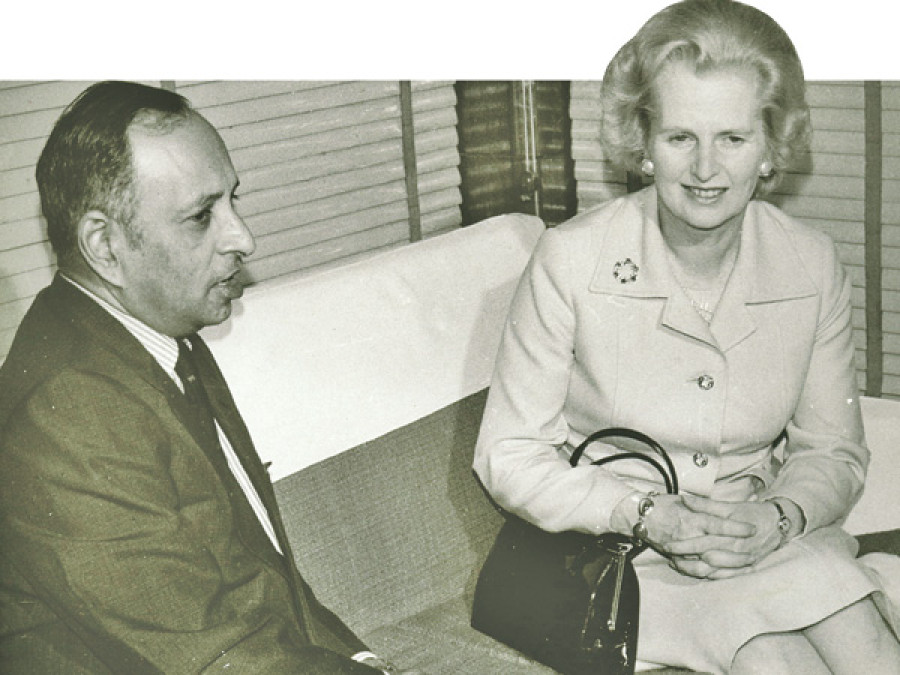Miscellaneous
Diplomatic memoirs
Nepali diplomacy hit a new watershed in 1978 when, for the first time, India consented to separate transit from trade and treat them as two fundamentally separate issues. This had been turned down, adamantly and forcefully, by Indira Gandhi in 1975. This transit treaty of 1978 was a veritable landmark treaty in the history of Nepal, comparable, to my mind, with the Nepal Britain Treaty of 1923. This occurred when Moraji Desai was Prime Minister and Jagat Mehta was the Foreign Secretary and chief negotiator. Given this background, I gladly bought Mehta’s autobiography, out of sheer curiosity and admiration.
Nepali diplomacy hit a new watershed in 1978 when, for the first time, India consented to separate transit from trade and treat them as two fundamentally separate issues. This had been turned down, adamantly and forcefully, by Indira Gandhi in 1975. This transit treaty of 1978 was a veritable landmark treaty in the history of Nepal, comparable, to my mind, with the Nepal Britain Treaty of 1923. This occurred when Moraji Desai was Prime Minister and Jagat Mehta was the Foreign Secretary and chief negotiator. Given this background, I gladly bought Mehta’s autobiography, out of sheer curiosity and admiration.
The first question that hit me was why he chose the title—tryst betrayed. Nearing the end of the book, the revelation was made—in his final chapter titled, ‘Why has India underperformed after independence’. Mehta sees Pandit Nehru as “the greatest democratic dictator in history, and twelve years of his prime ministership were largely wasted”. The opportunity lost was a direct result of what he calls the “self hypnosis” that the bureaucracy fell into. It believed in the “Panditji knows best” idea and thus offered no alternative views which eroded professionalism in diplomacy. The bureaucracy was totally “committed”, as it were. A committed bureaucracy bodes ill for democracy, the rule of law and strong institutions, which necessitate, as professionals, loyalty to India’s long term interests.
Jagat Mehta struck me as a strong moral and ethical person with an independent mind who believed that sincere volunteerism by the people is the correct path to supplement the state’s role in eradicating poverty and curtailing terrorism in India.
Through his book, it’s clear that he is critical of Nehruism, if not of Nehru himself. By Nehruism, I mean the principle of giving “commanding height” to the state in the arena of development and economy, and copying the Soviet model for economic transformation which cost India dearly in terms of agricultural and rural transformation, as well as human capital development, mass literacy, mass sanitation and mass electrification.
In diplomacy, Mehta considers India not voting with the other Non-Alignment Movement nations and siding with the Soviet Union in its aggression of Afghanistan in 1980, a blunder. Had it voted with the others, he believes, India would not have handed a dominant role to Pakistan in Afghan affairs. He also feels that strong India-Afghan ties would not have given birth to world terrorism and the likes of Osama bin Laden.
Nehru was correct, thinks Mehta, in going for Non Alignment (NAM) as the tenor of his foreign policy, which had great impact on most developing nations. But as the Cold War period progressed, it was looked upon by the West as an aid maximising tool. And the way it was carried out “alienated nations whose friendship could have had a positive impact on our present”. Mehta asserts that NAM was later seen by both sides of the Cold War as a blackmailing tool to play off one against the other. His posting to China led him to believe that excessive friendship with the USSR cost India of China’s goodwill—which was then weakened further with sheltering the Dalai Lama at Dharmasla.
The book is a must read for our diplomats as they seek to get diverse postings abroad. Jagat Mehta strikes me as a rarest of bureaucrats for his independence, guts, intellectual integrity and analytical acuity. Mehta served in China, Switzerland, Germany and Tanzania. Hopefully, such a memoir will create an appetite amidst our own bureaucrats to pen their experiences for the benefit of posterity. It will go along way to contribute to the institutional memory for that ministry as well as help us better understand contemporary national affairs. I cannot help feeling that our foreign policy should take good heed of the wisdom of Jagat Mehta, time will bear him out once Indian bureaucrats rise above the quagmire of short term real politics at the cost of the long term interest of India.
For non-diplomats, however, the memoir appears a bit too-laborious-a-read if one is unlikely to serve in foreign missions.
Rana, former Minister of Finance, is a professor at SAIM, Kathmandu




 13.12°C Kathmandu
13.12°C Kathmandu









